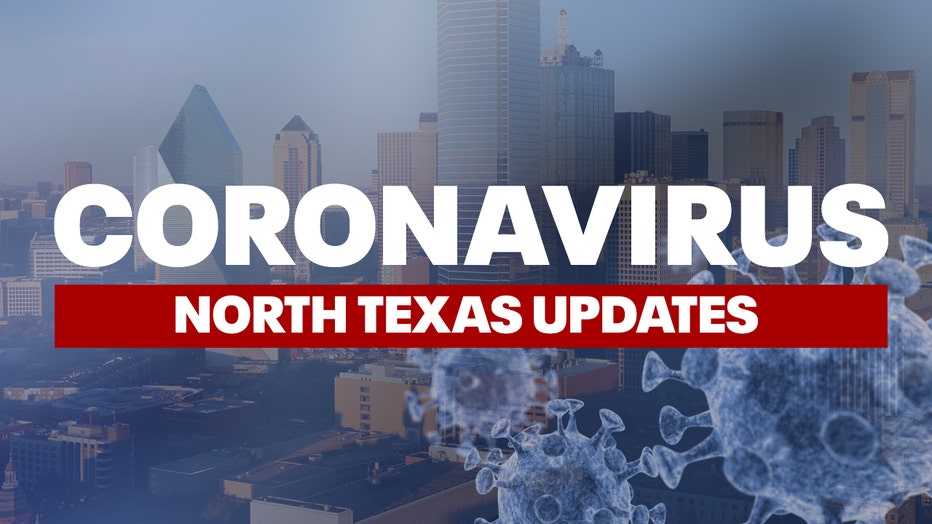Omicron peak may be on the horizon, but people should still take precautions
DALLAS - Several school districts are starting their holiday weekend early because of rising COVID-19 numbers and the related staffing shortage.
Mansfield ISD announced it would close six elementary schools Thursday through Monday, which is Martin Luther King Jr. Day.
They say there just are not enough staff members available.
It's a similar story for some smaller school districts, including Red Oak, Boyd, Kemp, and Rio Vista.
RELATED: More North Texas school districts closed because of COVID-19 outbreaks
The long lines at COVID-19 testing sites remain the same at places like Fair Park in Dallas.
There is some good news, with new data in Britain suggesting the current omicron wave may have already peaked and that the same rapid increase and drop off may happen in the U.S.
But there is still a focus on the healthcare system, which is also strained by the staggering number of cases.
Medical experts caution the new data is positive news, but we still may continue to see very high numbers of case counts and hospitalizations even as the curve heads down.
"The virus keeps surprising us in the United States," said Dr. Catherine Troisi, infectious diseases epidemiologist at UT School of Public Health in Dallas.
There is positive news possibly on the horizon as reports from Britain indicate the country may have reached its omicron peak, and the U.S. could see a similar turnaround in a matter of weeks.
New cases in Britain have fallen to 140,000 a day in the last week after peaking above 200,000 per day.
Both numbers are significantly smaller than the seven-day average of 751,000 new cases per day being reported in the U.S.
"This makes good news for us, certainly, as for Britain, but it's also important to remember that just because you're past the peak, doesn't mean there aren't any cases, and it's going to take a while, if ever, till we get, you know, down to a reasonable level or a very low level of cases," Troisi added.

Medical experts caution there are also different circumstances, including U.S. vaccination rates that lag behind Britain and other countries.
"The population is different. The vaccination penetration is different there. There are all sorts of variables, so I don't think we know that for a fact, we hope," said Dr. James McDeavitt, executive VP and Dean of Clinical Affairs for Baylor College of Medicine.
The current numbers in the Metroplex are staggering.
According to the Parkland Center for Clinical Innovation, Dallas County continues to see a rapid increase in positive cases fueled by omicron, a 128% increase over the last week, as well as a 48% increase in COVID-19 hospitalizations.
The numbers are already exceeding the delta peak, and rapidly approaching pandemic highs that took three months to reach, which Dallas County could now see in a matter of three of four weeks.
"If I compare today to the beginning of December, there is 50 times the level of omicron in the community that there was just a month ago," Dr. McDeavitt said. "Meaning, if I go to a restaurant or the coffee shop down the street, the guy sitting to my right or left is 50 times more likely to have omicron or coronavirus than a month ago."
COVID-19 modeling from the University of Texas predicts reported cases will peak within a week, but medical experts caution that doesn’t mean we’ll get through this current wave as quickly.
"In the best case, where this goes up quickly, goes down quickly. To put that in perspective, that doesn't mean the next Tuesday, everything's fine. It means that we're still faced with about four to six weeks of significant stress on our health care system," Dr. McDeavitt added.
Reports indicate the combination of recoveries, new treatments, and vaccinations among populations may also make the pandemic more manageable, including shorter hospital stays for admitted patients, but experts said it’s still unclear how long immunity lasts after recovering from the virus.
"Let's say that you did get this virus and or this variant and survive, how long immunity will last? And if it only lasts for six months, then you're going to have a whole bunch of susceptible people again," Troisi said.
Experts also caution the number of positive cases is likely being significantly under-reported since many people may be testing positive with at-home kits that are not part of the public health statistics.

